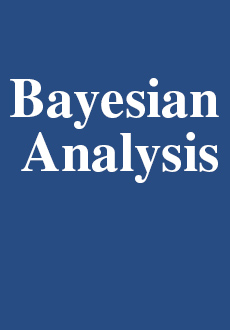Abstract
We define a new Bayesian predictor called the posterior weighted median (PWM) and compare its performance to several other predictors including the Bayes model average under squared error loss, the Barbieri-Berger median model predictor, the stacking predictor, and the model average predictor based on Akaike’s information criterion. We argue that PWM generally gives better performance than other predictors over a range of -complete problems. This range is between the -closed--complete boundary and the -complete--open boundary. Indeed, as a problem gets closer to -open, it seems that -complete predictive methods begin to break down. Our comparisons rest on extensive simulations and real data examples.
As a separate issue, we introduce the concepts of the ‘Bail out effect’ and the ‘Bail in effect’. These occur when a predictor gives not just poor results but defaults to the simplest model (‘bails out’) or to the most complex model (‘bails in’) on the model list. Either can occur in -complete problems when the complexity of the data generator is too high for the predictor scheme to accommodate.
Citation
Jennifer Lynn Clarke. Bertrand Clarke. Chi-Wai Yu. "Prediction in -complete Problems with Limited Sample Size." Bayesian Anal. 8 (3) 647 - 690, September 2013. https://doi.org/10.1214/13-BA826
Information





